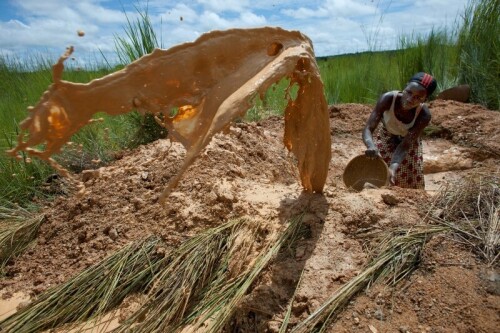KARACHI, Feb 14: The faces of most stock brokers accustomed to Shylock sly smile now wear a perpetual sneer. Hard times have taken their toll as 4/20 of 2008, sits heavily on their collective memory. That was the day when the equity markets made a sudden turn around to the South, from an unending spell of a bull run, which had taken the KSE 100-share index to the peak of 15,676 points.
“Then the bear rampaged as in a china shop taking everyone by surprise,” a stock broker admitted. He believed that among the 160 active brokers all had taken the beating, though in varying degrees.
As the index dipped by 67 per cent and the paper value of corporate Pakistan lost almost half of its all-time high figure of an incredible Rs4 trillion, brokers were relieved of a great deal of their wealth.
The losses stemmed from defaults by clients, which a KSE director Haji Ghani Haji Usman contends still range between Rs6 to Rs7 billion; the steep drop in the price of the previously invaluable membership card, the impairment of portfolio, both on the brokers own account and equity investments by companies and mutual funds in which some major players held the controlling stake.
As the price of stocks succumbed, tens of billions of rupees in market capitalisation of such companies and mutual funds were reduced to millions. While most people see that as an evaporation of the broker wealth, some argue that the loss of equity values held for long-term could not be construed as a loss.
“Markets are cyclical and they can go up as they come down,” says a registrar for companies. But almost all brokers, their agents and analysts hold a consensus view that the greatest damage to the market and to the brokers and clients was caused by the insane decision to fix a ‘floor’ under the index, in a failed attempt to stem the rot.
“That caused much damage and hardly any good during those four months that the floor was in place,” say several brokers. They claim that the ‘floor’ trapped everyone; the local and foreign investors and the stock brokers.
Much has been said about the first two, but how did it hurt the broker? A senior member explained that the brokers were keeping strong tab on the 20 per cent margin from the clients until the ‘floor’. Everyone was scared stiff of the fall in market once the ‘floor’ was removed, but a broker says that a call to clients to ask for a further margin was returned by a bark from the other end of the phone line: “Why do I pay additional margin when the price is stuck.”
Few could manage the steep drop of 40 per cent in values following the lifting of the floor. Clients were either unwilling or unable to pay the additional margin, when calls were finally made. It was the brokers who were then left holding the dirty end of the stick.
The aggregate loss
“It is impossible to figure out the collective amount of loss,” say most stock brokers. Over the previous five years of an impressive surge in equity prices, the brokers were known to have made bountiful of wealth.
Was all of that lost in the crash of 2008? No one knew the exact answer. But while at least four stock brokers were reckoned to have lost their membership card; two of which were placed on the auction block, the value of the rest receded from Rs150 million a piece at the height of the bull run, to under Rs50 million, currently.
A legend has it that one membership card was sold for as little as a token rupee one! The seller was said to be a banker-turned-broker, who exchanged the card with a stock broker in Lahore for his colossal debts to banks.
Some of the big boys in the broking business were known to have plugged their losses through the sale of some industrial undertakings and plots of land, held here and abroad. The major chunk of earnings of stock brokerages flowed in through commissions.
“This segment has taken a two way hit. On the one hand, the volume of daily turnover at the market has dipped to less than a half of 250 million shares and on the other, earnings have dried up, as brokerages charge commission to institutions as percentage of value of stocks,” says an analyst.
Loss to clients
Where margins were not realised from the clients, many stock brokers either pledged the clients’ shares with the banks in response to payment calls or even sold them without the clients’ consent. A plethora of complaints are in constant hearing before the arbitration committee of the stock exchanges.
But Haji Ghani laments: “Clients can knock various doors when they have complaints against brokers, but the latter is friendless.” Their only option is to plead and beg the clients to pay their dues. In reply, at most times the client either goes back on his word or turns his pockets inside out. The brokers must then bear the brunt of the blow.
Cutting costs
After an endless wait for the market to turnaround, which was not to be, most stock brokerage firms have resorted to reducing costs. That inevitably has resulted in layoffs and pay cuts, mainly in the back office and sales section.
An analyst who still manages to cling to a strong brokerage firm says: “We have been ordered to go home early, seemingly to trim power and phone bills.” A veteran at the market says that the boys in the sales section who made as much as Rs200,000 or even more in commission in good days, have packed off and could now be seeing doing odd jobs in Kharadhar, a thickly populated low income locality, a furlong away from the bourse.
The bigger worrier
The stock, a game of high finance is also regarded as a test of nerves. Of the 160 active members at the KSE, nearly 70 are said to have gone out of business due to very thin volumes.
But interestingly such is not the case at the Lahore Stock Exchange. A powerful broker at the bourse in Punjab capital gave a chilling reply to the query of how many of the 80 to 85 brokers at the LSE had suffered heavy losses. “None,” says he.
And the reason he forwarded was that almost all took their exposure through the stock brokers at Karachi. When the tables were turned, all they had to do was to take no calls from Karachi and turn their faces the other way!
And talking of nerves, in Karachi, one of the big brokers narrated an interesting incident. He said that two clients were sitting in his office; one of whom had suffered a heart attack a few weeks ago. The other client sympathised with him and asked what brought on the ailment. “He owes lot of money to a stock broker and is naturally spending sleepless nights, worrying on how to pay him,” interjected the host broker. A moment of silence and then the other client replies: “I am also indebted to a broker in a very heavy sum, but it is he who has suffered a heart attack on worries of how to get the money out of me!”

















































Dear visitor, the comments section is undergoing an overhaul and will return soon.